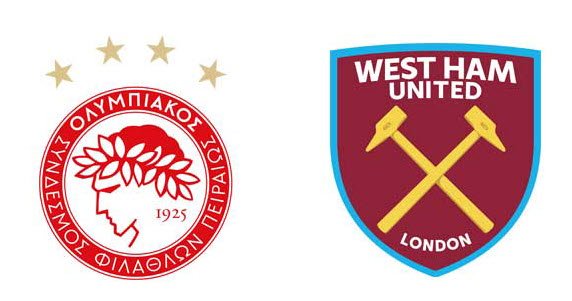Olympiakos – information for travelling supporters
WHUST had an online conference call with representatives from Football Supporters Europe (FSE) to discuss arrangements for our Europa League match at Olympiakos next week.
The main concern raised by supporters is the mandatory coach travel to and from the stadium and the cost of this travel that was only announced when the tickets actually went on sale.
In addition to the match ticket price of €35 (£31), there is a compulsory local travel charge of €25 (£22), making the total package cost of ticket and local travel €60 (£53). The pick-up point for the coaches to the game will be the Panathenaic Stadium.
This arrangement has been in use for all the European Olympiakos matches played at the Georgios Karaiskakis Stadium during the last few seasons. FSE cited examples of Eintracht Frankfurt, Freiburg, Genk and Nantes all having to use coaches. It seems that West Ham were late in informing supporters when this should have been known about well before the announcement.
The area around the stadium is not particularly welcoming and Piraeus is not a completely safe place on matchdays. The coaches are there to ensure the safety of our supporters. This is especially the case after the match where the authorities do not want any lone groups of supporters trying to make their own way to local hotels or the metro. You will have to travel back on the coaches to central Athens. Olympiakos supporters regard Piraeus as their turf and are not interested in going to Athens to look for trouble. Athens itself is very pleasant and the policing there is much more friendly and relatively easy going. We have also compared notes with Arsenal Supporters’ Trust whose members have been there 4 times for Champions League games and have said that Athens is a much better location to stay in.
The coaches are well organised and the meeting point location at the Panathenaic Stadium is easy to access and there are bars and food kiosks in the locality. We understand that there will be at least 30 coaches provided that are comparatively luxurious compared to the city buses. Travel to the ground is reasonably quick as the roads are closed to allow the coaches under police escort to travel freely.
Once at the ground supporters should expect that the police searches will be rigorous, with one or more body searches taking place. The search area will be surrounded by various police units and there is no access to the stadium for away fans other than from the organised coaches. You can expect some goading from the home fans near the searches – hence the police are also there to protect you.
Once inside the ground, beware of laser pointers. This is a particular problem in Greece and there can be 30 to 40 people with them at a match. The stewards seem reluctant to take forceful action against people using them. This week’s international match between Greece and The Netherlands was plagued by laser pointers, with Greek fans shining the lights into Netherlands players all night.
There have been some instances of not enough water and soft drinks being available in the ground.
After the match you can expect to be held back for possibly an hour, plus the time that it will take for all supporters to board the coaches. The police will ensure that everyone has to go on the buses – there are no exceptions to this, even if your hotel is in Piraeus – you won’t have a chance to get outside of the police cordon. The coaches will all leave together with a police escort back to Athens.
FSE have been trying to ascertain the legal framework for mandatory coach travel. There is some ambiguity about who is then responsible for actually organising the coaches. It seems a possibility that this is nothing to do with the Olympiakos club itself, FSE expects clarification on whether this measure is compatible with the price cap.
FSE feel that the use of coaches to and from the stadium is probably the best solution to ensure the safety of away supporters.
WHUST is still trying to ascertain from the club why there was a delay in informing supporters of the coach arrangements, as doing so would have given supporters more time to arrange suitable hotel accommodation.
The club should have known about this when they participated in the UEFA Safety & Security Conference in Rome on 13th September. This conference has the objective of sharing best practices, exchanging information between club security officers and police. Attendees include every security officer from every club that has qualified for the group stage of the Champions League, Europa League and Europa Conference League competitions, together with national association security officers and National Football Information Points (NFIPs) from all UEFA member associations.
The club are due to put out detailed arrangements to supporters including the coach travel logistics.

